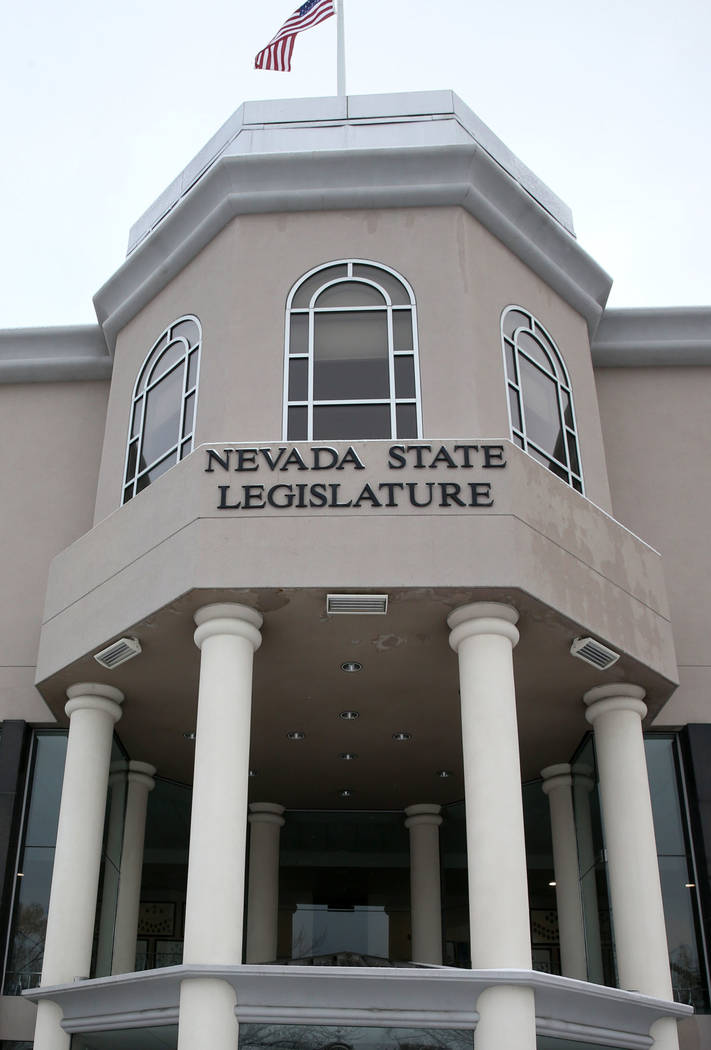Putting teeth behind the Public Records Law
CARSON CITY — Imagine for a moment there are no speed limits.
Then after lots of accidents and a public outcry, the government sets limits but provides no penalties for ignoring them.
Most drivers follow the law, but some scofflaws don’t.
So the government finally sets penalties for violations.
Would the majority of drivers who are already following the law complain?
That scenario came to mind last week as a legislative committee heard three hours of testimony on a bill to promote compliance with — and put teeth into — the state’s Public Records Act.
A parade of public officials who turned out for the hearing professed their dutiful compliance but opposed the proposed changes, appearing like those law-abiding drivers who obeyed the speed limit even before there were penalties.
If everyone really is complying, why the protest?
The Nevada law, which dates to 1911, is meant to be expansive rather than restrictive: Government records are public by default unless declared confidential, and anyone can inspect them or request copies.
There are at least 473 specific exemptions in the law — the Legislature exempted itself entirely from disclosure in 2015 — and other uncounted exemptions exist amid the hundreds of state statutes and administrative regulations. Nonetheless, the law says up front that its enabling provisions should be “construed liberally,” while exemptions or exceptions that limit access “must be construed narrowly.”
Countering bad actors
It hasn’t quite worked that way in practice. In this year’s Senate Bill 287, a coalition of media interests, civil rights and good government advocates under the banner of Right to Know Nevada proposed changes to the law aimed at “bad actors” — those who thwart records requests by charging excessive fees or otherwise delay, deny or flat out ignore requests for information.
The Las Vegas Review-Journal is among the bill’s supporters. The newspaper currently has litigation pending against the Clark County School District, the Metropolitan Police Department, the city of Henderson and the Clark County coroner’s office for denying access to records.
The proposed changes would limit fees agencies may charge for producing records to the cost of copies alone, if needed. Agencies would have to provide digital records in their original format (instead of printing them and charging a copy fee), and officials would have to help requesters find the records they’re seeking. For instance, an agency could work with someone to narrow an overly broad request, rather than simply denying it on its face.
Now, for enforcement: A judge who finds an agency wrongfully withheld access to records would be able to impose fines of $100 for each day of noncompliance, award attorneys fees to the requester and impose civil penalties from $1,000 to as high as $250,000. Agencies would have to identify the person who fulfills or denies records requests, and that individual could be personally liable for fines and penalties, so taxpayers don’t end up footing the bill if a government official goes rogue.
Ensuring compliance
Why the penalties? To encourage compliance. The state’s nearly 60-year-old Open Meeting Law was rewritten in 2011 to include penalties, and a task force last year recommended increasing them.
Creating penalties in the Public Records Act “would incentivize officials to follow the law,” Richard Karpel, executive director of the Nevada Press Association, said Wednesday. “Those are the kinds of incentives we need to change the culture surrounding this law.”
Across the country, state public records laws — and they vary widely — generally don’t get high marks from access watchdogs. A 2015 survey by the Center for Public Integrity rated no state higher than C-minus for access to information, and 44 states, including Nevada, got a failing grade. But Right to Know Nevada cites 23 states that are making improvements.
Three states let courts hold offending officials personally liable for costs and attorneys fees. Nine states and the District of Columbia let courts fine officials for violations. In three states, offenders can face up to 90 days in jail. In Nebraska, violators can be charged with a misdemeanor and removed from office.
Little of that came up at Wednesday’s hearing, where bill opponents made impassioned arguments on how bad the changes were. Some requesters, they said, are nothing but serial gadflies, making enormous and expensive requests and sometimes never bothering to collect (or pay for) the records. Their agencies, they said, don’t have the ability or staff to redact records or the money to pay for software that does. And given the ability to sue for huge fines, a person could make a living taking governments to court for not turning over records.
Opponents predicted a flood of lawsuits and argued that the bill makes no provision for good faith efforts to comply — an assertion advocates disputed. They objected to letting plaintiffs sue and collect fines for withholding records but not allowing governments to collect fees when a request is deemed frivolous. The bill is likely to be amended, with sponsors looking at those concerns.
Government representatives cited statistics on how many requests they receive and process and how quickly they turn them around. Several officials complained requesters monetized the information they received, such as posting video online with advertisements.
Reno’s city clerk said she could not make copies of the city’s original bound articles of incorporation due to their age and fragility. She brought one plastic-wrapped volume to the hearing as a visual, but she later acknowledged no one had ever requested it.
Police protest
And Metro said it assigned eight officers to review and redact body camera footage from the Route 91 Harvest festival shooting in response to a Review-Journal request for the video the paper went to court to obtain. The cost, over months of work, came to more than $1 million, and officers faced an emotional toll from reviewing the graphic footage.
Matt Christian, the department’s assistant general counsel, presented it as a choice between transparency and public safety.
“Either we receive more money to hire more folks who can be dedicated, full-time, to redacting and compiling records, or the citizens just have to know that they’ll have less officers on the street,” he said. “There’s no other option.”
Review-Journal Executive Editor Glenn Cook disputed Christian’s statement.
“The Metropolitan Police Department had to be sued and defeated in court to get those records into the light of day,” Cook said Sunday. “Metro’s testimony before lawmakers might have created a perception that Las Vegas police embrace transparency, when in fact the agency fights at great expense to keep public records secret. If Metro would stop fighting requests for public information, it could save hundreds of thousands of dollars on outside counsel — and, ultimately, on the costs of plaintiffs’ legal fees — and use all that revenue to either hire additional public information staff or put more officers on the streets.”
Throughout Wednesday afternoon, the underlying message officials conveyed was that the Public Records Act is a burden, not a vital tool for the public and the press to exercise oversight of the government. Seen in that light, the costs associated with providing public records are no different from those to provide for police or fire protection, judges and courts or public hospitals, advocates say.
“I’ve heard many who oppose this bill say this is an unfunded mandate,” said Trevor Hayes, a lawyer, former Review-Journal reporter and current Nevada System of Higher Education regent. “No, this is a core obligation of government.”
Contact Bill Dentzer at bdentzer@reviewjournal.com or 775-461-0661. Follow @DentzerNews on Twitter.
























